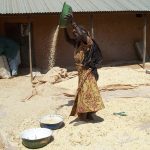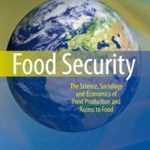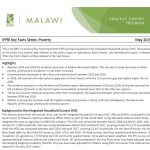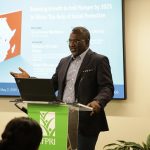This blog is cross-posted from the IFPRI website and was originally written by Swati Malhotra. The amount of food loss and waste in supply chains is significant. The most widely cited estimate, by the UN Food and Agriculture Organization (FAO), is that as much as one third of total usable global food production is not […]
World Environment Day: The need for strong institutions and policies to restore and protect planetary health
This blog is cross-posted from the main IFPRI website and was written by Claudia Ringler and Ruth Meinzen-Dick. As people and organizations around the globe mark World Environment Day (June 5), all signs point to an unprecedented and rapid decline in planetary health. A preview of a global report on biodiversity, the most comprehensive to […]
The relationship between forest cover and diet quality: a case study of rural southern Malawi
The importance of forests in supporting the well-being of poor rural communities in developing countries cannot be overstated, not only for improving food security but also for biodiversity conservation. A study recently published in Food Security journal examined whether there is a relationship between forest cover and diet quality at the household level in rural […]
Key Facts Sheet: Poverty
IFPRI Malawi is pleased to announce the publication of a fifth Key Facts Sheet highlighting recent trends in poverty in Malawi. This follows Key Facts sheets on agriculture, food and nutrition security, social safety nets, and inequality. The series is being produced using the Integrated Household Surveys (IHS). The series synthesizes nationally representative household survey […]
Exploring the benefits of social protection in Africa
This post is cross-posted from the IFPRI website and was originally written by Katarlah Taylor. Social protection—public or private initiatives that aid the poor and protect the vulnerable against risks to their livelihoods—is key to efforts to reduce hunger in Africa, according to a report by Regional Strategic Analysis and Knowledge Support System (ReSAKSS) project. […]
- « Previous Page
- 1
- …
- 29
- 30
- 31
- 32
- 33
- …
- 46
- Next Page »





